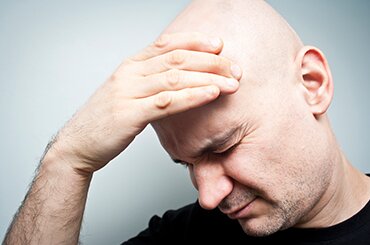- Causes, Signs and Symptoms of Heroin Withdrawal
- Symptoms of Heroin Withdrawal
- Severity of Withdrawal Symptoms
- Treatment for Heroin Withdrawal
- Inpatient vs. Outpatient Programs
- Help Someone Through Withdrawal
What is Heroin Withdrawal? Are There Withdrawals From Heroin Use?
Unlike other drugs of abuse, you can experience severe withdrawal symptoms after only a few hours of heroin usage, which is one of the pernicious aspects of heroin dependence.
Causes, Signs and Symptoms of Heroin Withdrawal
Heroin withdrawal is similar to withdrawal from other substances and can include an array of extremely unpleasant symptoms.
When someone uses heroin, (either through snorting, smoking or injecting) their brain and body adapt to the heroin use over time and they begin to build up a tolerance.
After a period, as tolerance builds up, the body requires a higher quantity of heroin to achieve the same results, and thus, heroin use typically increases to meet the increased physical and psychological need. If heroin use is then stopped, withdrawal occurs.
Therapists are Standing By to Treat Your Depression, Anxiety or Other Mental Health Needs
Explore Your Options Today
Ad
Withdrawal is both physical and psychological, and your fear of quitting after prolonged heroin use is exacerbated by the very real fear of experiencing brutal withdrawal symptoms.
Heroin withdrawal is similar to withdrawal from other substances and can include an array of extremely unpleasant symptoms, including:
- Cold sweats.
- Excessive sweating.
- Nausea.
- Cramping.
- Pain in muscles.
- Bouts of crying.
- Fever.
- Insomnia.
- Diarrhea.
Heroin addiction is a confounding disease that inevitably has a profoundly negative impact on the person using, as well as their family, friends and professional colleagues. As with other drug and alcohol addiction, heroin addiction is a chronic brain disease. Thankfully, there are effective treatments available.
If you or someone you love struggles with heroin dependence, is unable to cope without the drug, or has a profound fear of withdrawal symptoms,
it’s time to seek help.
Our treatment support team can provide more information about the wide range of effective heroin addiction treatment options at
1-888-993-3112Who Answers?.
Symptoms of Heroin Withdrawal














Heroin withdrawal is brutal and typically takes up to:
- 4 days in the acute phase.
- 6 months in the protracted phase.
When the acute effects of heroin start to abate, someone goes into what is referred to as anticipatory opioid withdrawal.
This begins approximately 3-4 hours after the point of last usage and is manifested through:
- Increased anxiety.
- A crippling fear of the upcoming withdrawal process itself.
- A strong drive to obtain more heroin.
In early withdrawal (approximately 8-10 hours after last usage), anticipatory symptoms increase and new unpleasant symptoms start to develop, such as:
- Extreme restlessness.
- Nausea.
- Sweating.
- Stuffed up nose.
- Stomach cramps.
- Dilated pupils.
From the end of day 1 to day 3 or 4, you will likely experience profound:
- Anxiety.
- Restlessness.
- Tremors.
- Vomiting.
- Diarrhea.
- Muscle cramps.
- Increased blood pressure.
- Chills.
- Intense cravings.
- Suicidal thoughts.
While many former heroin addicts report the protracted phase of withdrawal abates after a period of months, in some cases, the duration of symptoms is much longer.
Protracted withdrawal is characterized by anxiety and depression, insomnia, fatigue and muscle pain. Life in protracted withdrawal is severely compromised and in many instances, individuals are not able to live anything resembling a full life during this period.
Severity of Withdrawal Symptoms
There is a common fallacy that heroin withdrawal is not life threatening. While it is true that physical withdrawal symptoms will likely not cause death in the way that seizures can when a severe alcoholic undergoes withdrawal,
psychological heroin withdrawal symptoms can be particularly dangerous.
Suicidal thoughts are extremely prevalent during heroin withdrawal, which is why it is so critical to undergo withdrawal in a safe facility.
To determine the severity of opioid withdrawal, health care practitioners often use an evidence-based best practice tool called the
Clinical Opiate Withdrawal Scale (COWS).
Developed by Wesson and Ling, this scale measures withdrawal symptoms to determine the stage of withdrawal a heroin dependent individual is in.
The COWS tool measures symptoms including:
- Anxiety.
- Joint aches.
- Pupil size.
- Runny nose.
- Gooseflesh skin.
- Tremor.
- Gastrointestinal distress.
Treatment for Heroin Withdrawal
Withdrawal should be monitored and treated as part of the detoxification process in a medical facility that treats opioid withdrawal regularly.
Heroin withdrawal is not something that anyone should undergo without trained medical assistance.
Ideally, withdrawal should be monitored and treated as part of the detoxification process in a medical facility that treats opioid withdrawal regularly.
Medication-assisted heroin addiction treatment is effective and provides critical recovery support, both in the acute short-term phase of withdrawal, and in the long-term, by helping addicts overcome relapse triggers and successfully maintain abstinence.
Evidence-based best practice indicates that the use of buprenorphine or methadone during heroin withdrawal treatment (detoxification) and beyond is recommended.
As with withdrawal from other drugs of abuse, the goal of treating someone undergoing heroin withdrawal is to:
- Monitor vital signs.
- Provide as comfortable an environment as possible.
- Administer medications designed to reduce anxiety.
- Aid in addressing potentially life-threatening withdrawal symptoms.
Once the withdrawal process is completed, the combination of pharmacological treatments (such as buprenorphine) and psychosocial support has been shown to be most effective in ensuring long-term recovery.
Given the brain damage that can often occur through prolonged use of heroin, the combination of mental health services and the use of buprenorphine and/or methadone to assist someone as they transition from an acute post-overdose stage to nascent recovery is the primary course of treatment both in the US and globally.
Inpatient vs. Outpatient Programs
The two key options for long-term treatment of heroin addiction are outpatient drug-free counseling or long-term opioid substitution maintenance, and in-patient abstinence-based or medication-assisted treatment.

The
best choice depends upon:
- Your treatment philosophy.
- Your medical provider’s recommended course of treatment.
- Available financial and time resources.
- Outpatient treatment is typically more affordable and easier to integrate into daily life.

Participation in an
ongoing group and individual therapy is recommended. Valuable recovery tools can also be be found through such community-based organizations as:
- Neighborhood groups.
- Government and faith-based institutions.
- Peer-to-peer recovery support groups, such as Narcotics Anonymous..
If you’re concerned that you or a loved one is suffering under the weight of a heroin dependency, call
1-888-993-3112Who Answers? to speak with someone about your heroin addiction treatment options.
Help Someone Through Withdrawal
Effectively managing your own or a loved one’s withdrawal from heroin is not a realistic option. As outlined above, the severity of heroin withdrawal symptoms is such that trained medical treatment is absolutely necessary.
Don’t wait for your loved one to go into withdrawal. Seek help now for yourself or your loved one’s heroin dependency.
Call to speak to a treatment support team member about heroin addiction treatment options, 24 hours a day, at
1-888-993-3112Who Answers?.
- NIDA (9.2013) Drug Facts: Heroin. National Institute of Drug Abuse, National Institutes of Health, Washington, D.C.
- Rudd, R et al. (2014) Increases in Heroin Overdose Deaths — 28 States, 2010 to 2012. Morbidity and Mortality Weekly Report (MMWR) Centers for Disease Control and Prevention (CDC).
- NSDUH Series H-46. HHS Publication No. (SMA) 13-4795. Rockville, MD: Substance Abuse and Mental Health Services Administration (SAMHSA), 2013
- Wesson, D. R., and Ling, W. (2003). The Clinical Opiate Withdrawal Scale (COWS). Journal of Psychoactive Drugs, 35, 253–259.
As advocates of mental health and wellness, we take great pride in educating our readers on the various online therapy providers available. MentalHelp has partnered with several thought leaders in the mental health and wellness space, so we can help you make informed decisions on your wellness journey. MentalHelp may receive marketing compensation from these companies should you choose to use their services.
MentalHelp may receive marketing compensation from the above-listed companies should you choose to use their services.
Ad















